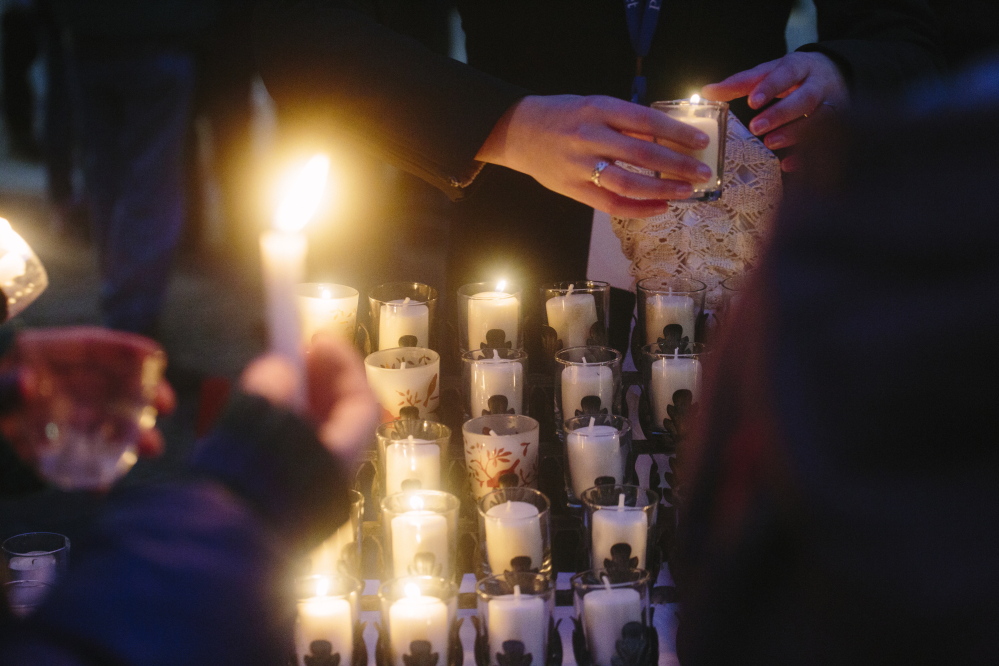It’s hard to be homeless. Imagine having to carry everything you owned everywhere you went. Imagine sleeping on a foam mat on a hard floor in a room full of strangers, or in a chair when the shelter is full, or in a tent when the wind is howling.
Imagine going without checkups and examinations, never seeing a doctor or dentist until you are in a crisis.
Imagine seeing people around you die from untreated illness, bad nutrition, exposure to weather, addiction, assault – in short, dying of homelessness.
On Monday, a circle of Portlanders gathered in Monument Square for a candlelight vigil to remember the 35 members of the homeless community who died in 2014. It was a somber moment for reflection, that in Maine’s most prosperous and progressive city, people are dying in the streets. The economy continues to recover from the financial collapse, but the size of the homeless population remains constant.
The causes of homelessness are not as well known as the folklore that surrounds it. About two-thirds of the people on the street are from Portland and other communities in Maine; they’re not migrants “from away” looking for a more generous handout.
Most are homeless for a short time – 72 percent for less than three months, according to the 2014 annual Point in Time Survey. Many are families, often a mother and her children escaping an abusive household.
Portland, because it is where social services are centered, has the biggest homeless population in the state. It is also a place with a housing shortage and spiraling rents. Disputes with the LePage administration over the use of General Assistance funds to support immigrants who are barred from working while seeking resident status could put even more people at risk in the coming year.
But there is also reason for hope. Less than a quarter of the 1,200 people counted last January in shelters and campsites were considered chronically homeless. Programs like Preble Street’s Logan Place could be expanded to get them off the street and into supportive housing where they can access health care, counseling and other services.
The remaining 900 or so are people who could take advantage of a recovering economy and tight labor market. They need short-term assistance, as well as help finding jobs and affordable places to live.
In 2012, Portland Mayor Michael Brennan commissioned a task force pledging to end homelessness in Portland. It’s a realizable goal. All it takes to meet it is the will.
The 35 who died this year were remembered in Monument Square on Monday, under the Christmas tree, a symbol of a holiday that promises peace and good will.
That’s a promise that we can all strive to keep, as we enter the coldest time of year.
Send questions/comments to the editors.


